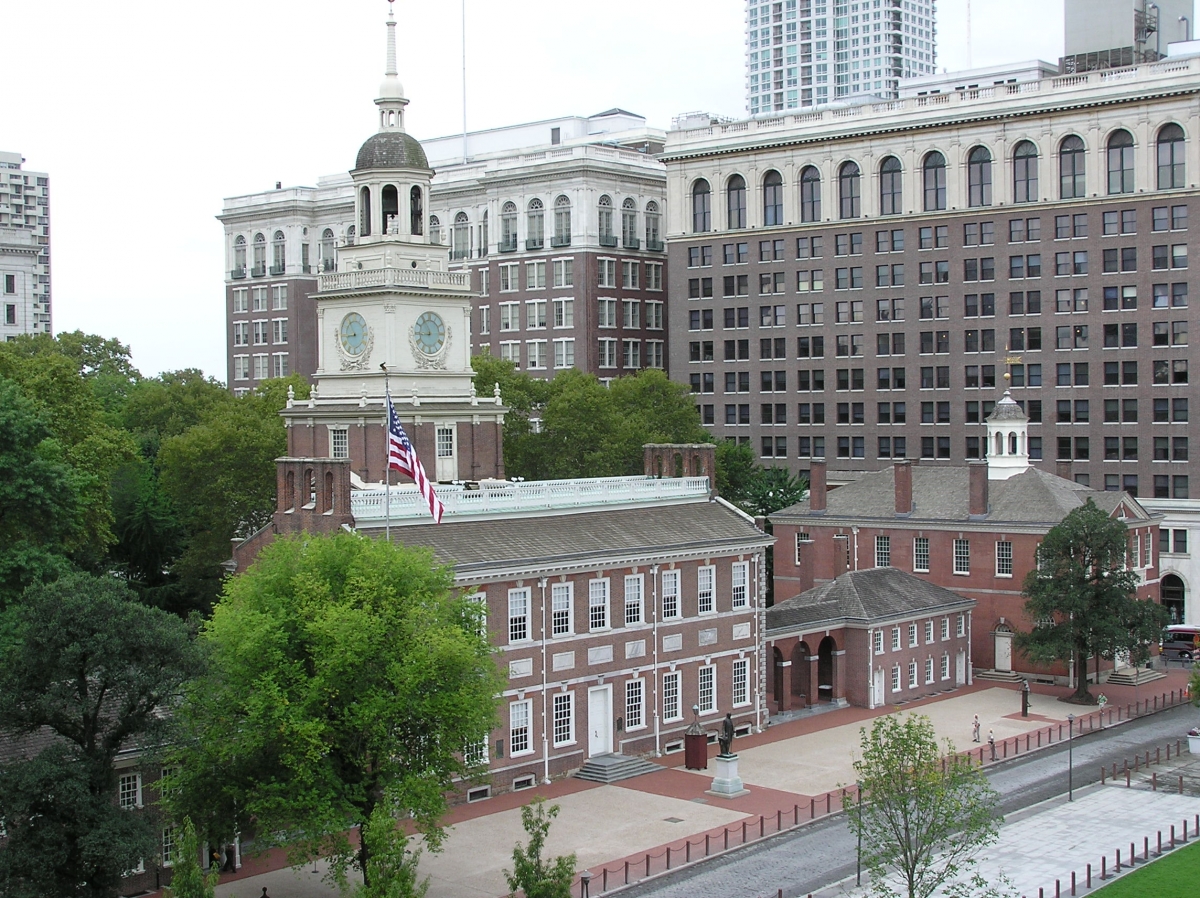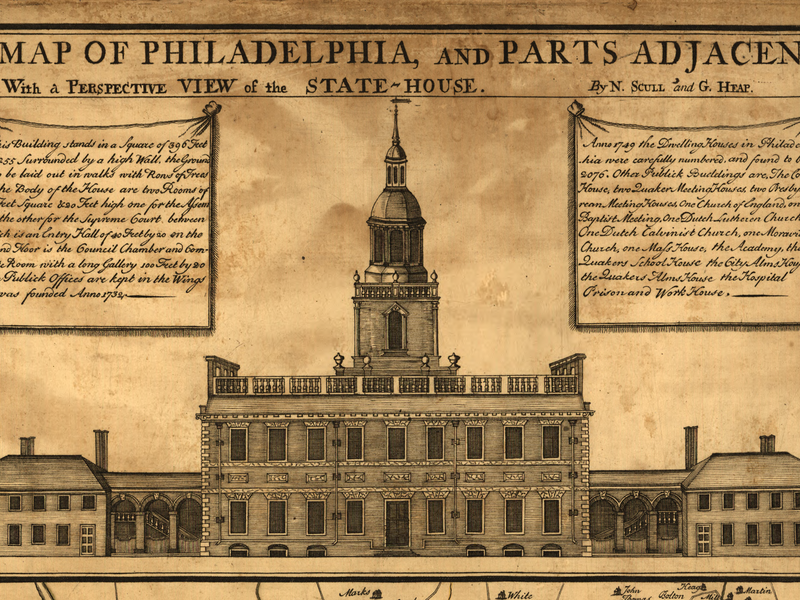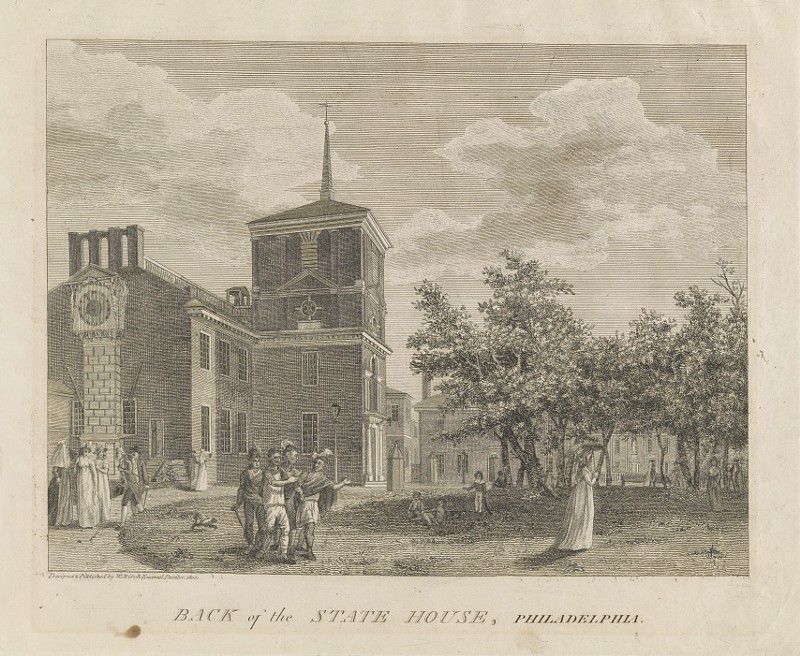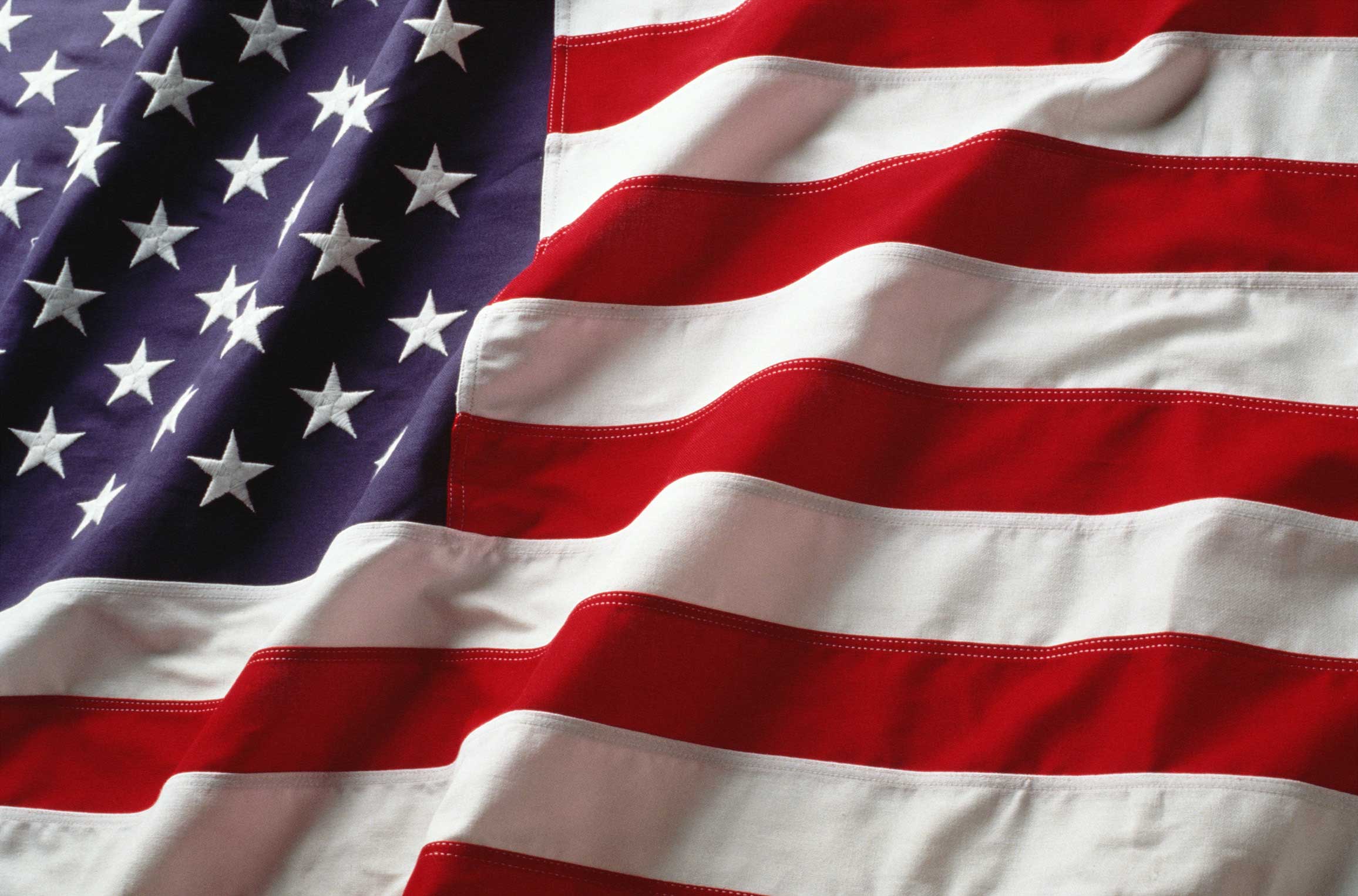Independence Hall Was Almost Demolished by the Commonwealth of Pennsylvania in 1812, But Saved by the City of Philadelphia
Related Posts
- Buy Tickets for The Constitutional Walking Tour of Philadelphia – See 20+ Sites on a Primary Overview of Independence Park, including the Liberty Bell and Independence Hall
- Independence Hall Tickets & Visitor Guide
- Independence Hall History
- Liberty Bell Tickets & Visitor Guide
- Judge Edwin O. Lewis
Preventing the Demolition of America’s Birthplace
Independence Hall is the centerpiece of the Independence National Historical Park. More than 4 million people come to Philadelphia each year to see America's Birthplace where our Founding Fathers signed The Declaration of Independence on July 4, 1776 and the Constitutional Convention met in 1787 to draft, debate and sign the Constitution of the United States.

As such, it may be surprising today to learn that there was a time in Pennsylvania history when plans were contemplated to bulldoze Independence Hall and sub-divide the property for real estate development.
By the turn of the 19th Century, Independence Hall - or, as it was called then, the Pennsylvania State House - had lost its importance as a meeting place for lawmakers.

In 1800, the Capital of the United States was relocated from Philadelphia to Washington D.C. Additionally, the Capital of Pennsylvania relocated from Philadelphia to Lancaster in 1799 and then again from Lancaster to Harrisburg in 1812. However, the Commonwealth of Pennsylvania still owned the former Pennsylvania State House in Philadelphia, and by 1812, Pennsylvania legislators were looking for ways to generate funds for their proposed new state house in Harrisburg.
The state's funding needs caused the legislature to focus on the old State House. Pennsylvania State legislators proposed that they demolish the former Pennsylvania State House in Philadelphia (Independence Hall), divide the land into lots, and sell both the lots and salvage materials “to the highest and best bidders”.

However, dating back to 1735, Colonial legislation had required that no green space around the Pennsylvania State House “be converted into or made use of for erecting any sort of building thereupon, but that the said ground shall be inclosed, and remain a publick open green and walk for ever.”
Enter the City of Philadelphia as Savior of Independence Hall
The City of Philadelphia, however, was outraged by the idea of destroying an irreplaceable monument, and also that the Pennsylvania State House offered a critical source of air, light, and recreation for Philly's growing population. So, the City offered to buy the State House from Pennsylvania for $70,000. However, State lawmakers said they would not accept any off less than $150,000. This began a very public 5-year campaign launched by civic officials which concluded with Philadelphia’s City Council taking possession of Independence Hall in 1818 based on terms more reasonable to what the City of Philadelphia originally offered.
The Pennsylvania State House Became Known as Independence Hall
Independence Hall earned the nickname only a few years afterward in 1824, when the Marquis de Lafayette came to Philadelphia to set foot inside what he called the “Hall of Independence”. Judge Edwin O. Lewis is considered one of the modern-day Founding Fathers because of the instrumental role that he played starting in the 1940s in the creation and preservation of Independence National Historical Park - America's Birthplace.
Seeing Independence Hall Today
Because of its importance to the founding of the United States, Independence Hall is a United Nations Educational, Scientific and Cultural Organization (UNESCO) World Heritage Site. The Constitutional Walking Tour begins tours at the North end of Independence Mall (at the National Constitution Center) with a grand view of Independence Hall, and takes visitors to all the other historic highlights in Old City. The Constitutional's VIP Tours may also go inside Independence Hall and see original copies of the Declaration of Independence and the Constitution.
Additional Information
Independence Hall
525 Chestnut Street
Philadelphia, PA 19106
215.965.2305
Online Independence Hall Tickets Reservations
Historical Images - Sources
- Pennsylvania State House (Independence Hall), by William Burch Russell (Library of Congress Prints and Photographs Division, Washington, D.C.)
- 1752 Map, Philadelphia, Pennsylvania. (Library of Congress via WikiCommons)



